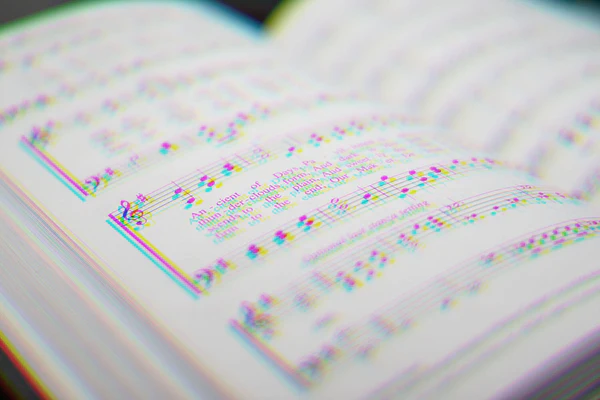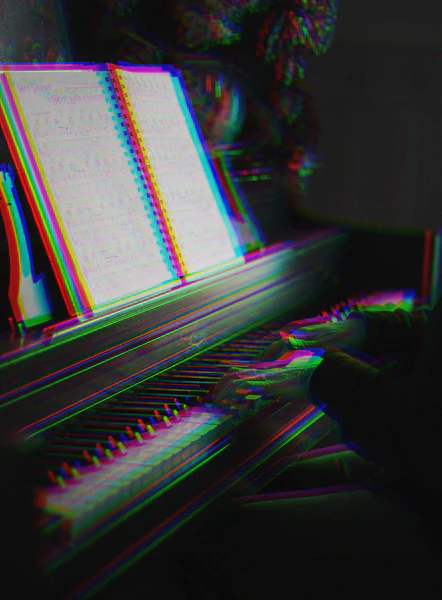Starting a band is complicated, and even that is probably a bit of an understatement! Finding members is one challenge, but finding your own sound and writing original material is even harder. That’s why for so many new groups, cover songs are a great way to get off the ground. Now if you have ever been in a band before or know a bit about the music scene then you’ll likely already know that cover bands don’t always have the best reputation. While they might seem a little cheesy at first, a lot of the “hate” cover bands get is undeserved in our opinion.
In fact, we at WeJam think starting out with cover songs is actually one of the best things you can do! Now, being a cover band isn’t always going to be as creative as writing your own material and performing it. But many people underestimate how creative performing covers can be.
If you’ve ever listened to Radio 1’s Live Lounge, you’ll agree there is plenty of room to add your own twist to the songs you perform. Doing a cover doesn’t mean you have to replicate it note for note. There are endless possibilities for making a cover your own, and it’s a fully legitimate approach to getting your band known.
So, forget any biases you have and try and forget about any cheesy cover bands you might have heard. Let’s get down to the top 5 reasons WeJam believes new bands should begin their musical journey with cover songs.
SOUND GREAT IMMEDIATELY
Starting a band isn’t always easy. Even if you’ve jumped through the hurdles of recruiting your bandmates and finding a great rehearsal space, the next big (and critically important) question, is what are you going to play?
There’s no doubt that writing your own material is incredibly rewarding, but it doesn’t always come naturally. For many musicians, songwriting can be a tortuous process, with hours spent staring at a blank piece of paper and musical ideas reaching dead ends. For a new band, this can be a disheartening experience and one that leaves you feeling frustrated. Furthermore, until other people hear your new song, it’s hard to know if it’s truly any good. An advantage then to playing covers is that you get to have fun and sound great from the get-go! Even if you are dead set on writing your own material, it can be a great way to get into the zone with your bandmates and remind yourselves how exciting it is to be in a band. Think of it as a warm-up perhaps? If you’re still not convinced, you might be surprised to know that plenty of famous bands started out as cover bands, the most notable being The Rolling Stones.
ASSESS YOUR ABILITIES
An advantage of playing a cover is that you already know how it should sound. This provides a great opportunity to compare and contrast your own rendition with the original to see where the band’s strengths and weaknesses are. If a band member is struggling with a particular section, rather than kick them out the band, see how you can adapt the part to suit their abilities.
Cover songs are also a great audition tool if you’re looking to add a new band member. Again, because you know what a great performance sounds like, you can easily tell if your potential new bandmate is up to scratch.
The other great thing about cover songs is there’s a whole spectrum of difficulty level and something for everyone regardless of ability. Beginners might want to check out our other articles on the best cover songs for beginners.
At WeJam we believe everybody should be free to express themselves musically, but before you perform publicly for the first time, spend some time listening back to your rehearsals and identify which bits of the song need more work. Practice makes perfect.

SATISFACTION
Perfecting that famous guitar solo or nailing that legendary bass riff feels great when you get it right for the first time. There’s a real sense of achievement when you learn how to play a cover – especially when everyone in the band does a perfect take. That’s not to say mastering your own material isn’t also satisfying, but knowing you’ve got what it takes to pull off a classic song means you’re well on the way to success.
THERE’S ROOM FOR CREATIVITY
We touched upon this earlier, but it really needs a more in-depth explanation. One of the biggest misconceptions about performing covers is that it is boring and uninspired. But this is just not true! A cover doesn’t have to be a faithful, 100% accurate reproduction. In fact, it could be argued that a good cover shouldn’t be.
Your band can add its own artistic and unique spin on a cover to make it something different. This will help your band flex those creative muscles and help you develop your musical style without needing to go through the difficult process of writing your own material.
Throughout music history, artists have always covered songs from their contemporaries and predecessors. Some of these covers barely deviate from the original, but many are completely surprising reinventions. For example, new wave classic Running Up That Hill by Kate Bush has been covered numerous different times. Alt-rock band Placebo’s version however is a distinct interpretation and a brilliant demonstration of cover song creativity. So, don’t be put off by thinking performing covers equals uncreative because it doesn’t.
LEARN FROM THE BEST
One of the best ways to learn more about music is to listen to a lot of it. And one of the best ways to learn about songwriting is to play a lot of covers. By deconstructing famous hits and teaching yourself to perform them, you’ll be able to see and study how songs are put together and get a whole new appreciation for them, even if you’ve listened to them hundreds of times already.
Playing covers is an effective way to further your understanding and knowledge of composition, and this in turn will help when it comes to writing your own material later on. Many bands and performers today have cited many other musicians as inspiration, or even referred to themselves as being obsessed. For example, artists like Beyoncé, Frank Ocean, and Beck have all spoken openly about their respect and love for Prince’s music. You’d also find it difficult to find a band who wasn’t inspired by The Beatles in some way. Famous disciples include The Beach Boys, Kiss, Nirvana, and even Black Sabbath. Performing covers is a great way to study music, so don’t be embarrassed about it.

PEOPLE LOVE A GOOD COVER
Finally, let’s look at a practical reason that everyone (even if you hate the idea of performing covers) can agree with. When they’re done well, people love a good cover song. Crowds will instantly recognize it and sing along. It’s just what you want as a new band. The truth is, when you’re starting out nobody will know your original material, so starting with some covers can be a great way to warm up the audience and get things going. This will also help build a greater sense of stage confidence.
Pop-rock band HAIM surprised fans with a cover of Wrecking Ball by Miley Cyrus for the BBC Live Lounge. While the Manic Street Preachers have covered Rihanna’s Umbrella and countless bands and performers have covered John Lennon’s Imagine. Maybe you’ve also been at a gig where your favourite artist surprised you with a brilliant cover?
WHAT’S THE WEJAM CONCLUSION
We love a good cover and think every new band should definitely give them a try. They offer so many benefits from strengthening your understanding of music to boosting your performance confidence and are a sure-fire way of getting a crowd excited. But perhaps most important of all, performing a cover is a lot of fun! When you get in the zone, you can imagine what it’s like to be the famous band whose work you’re covering. Whether you’re performing on stage or rehearsing in the studio, it’s a great way to feel like a rockstar. It also helps explain why karaoke is so popular. For those three minutes you’re singing or rocking out, you’re guaranteed to feel fantastic. At WeJam we have a huge catalogue of cover songs for you to choose from. Whatever your musical ability, you’ll be able to perform your favourite hits from your first session. So, don’t be put off by those cheesy covers bands you’ve seen in the past. Embrace the fun, excitement, and creativity by adding some covers to your band’s setlist.